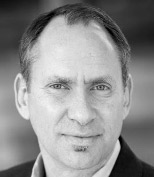|
Cleaning up your enterprise data architecture How to make your data lake more effective with an operational data hubDate: This event took place live on November 02 2017 Presented by: Damon Feldman Duration: Approximately 60 minutes. Cost: Free Questions? Please send email to Description:As more organizations have come to rely on big data, the data lake has held the promise of a flexible, scalable, integration point. Unfortunately, this very "flexibility" has made it easy to "pollute" the data lake with duplicate, stale, incomplete, and even wrong data. As a result, there is more data overall, but less reliability in its value. Add to this a lack of organization, governance, and security, and data lakes become a barrier to analytics and operations that rely on the data. Fortunately, your investment in a data lake doesn't need to be considered a waste. In this O'Reilly webcast, Damon Feldman, solutions director at MarkLogic, will discuss how an operational data hub can be combined with the data lake — maintaining the agile, flexible functions that are characteristic of a lake, with the added ability for fast, secure, governed data access. Learn how an operational data hub can utilize a Hadoop-friendly, multi-model database, without reducing it to relational structures and applying ETL transformations. In this webcast, you will learn how to:
About Damon Feldman, Solutions Director at MarkLogicDamon Feldman is a solutions director with MarkLogic, where he focuses on Data Hubs, Data Integration and Big Data. He has been with MarkLogic for almost 10 years, and worked on or led implementations of some of MarkLogic's largest, most complex systems — including the "Obamacare" ACA Marketplace, as well as multiple insurance, healthcare, and human services systems. Prior to joining MarkLogic, Damon worked at both consulting and product companies, with solutions ranging from automated network provisioning to financial analytics to tracking and organizing the cleanup of land mines. Damon holds a Bachelor's Degree in Mathematics from the University of Chicago and a Ph.D. in Computer Science from Tulane University. |
|
|
|


